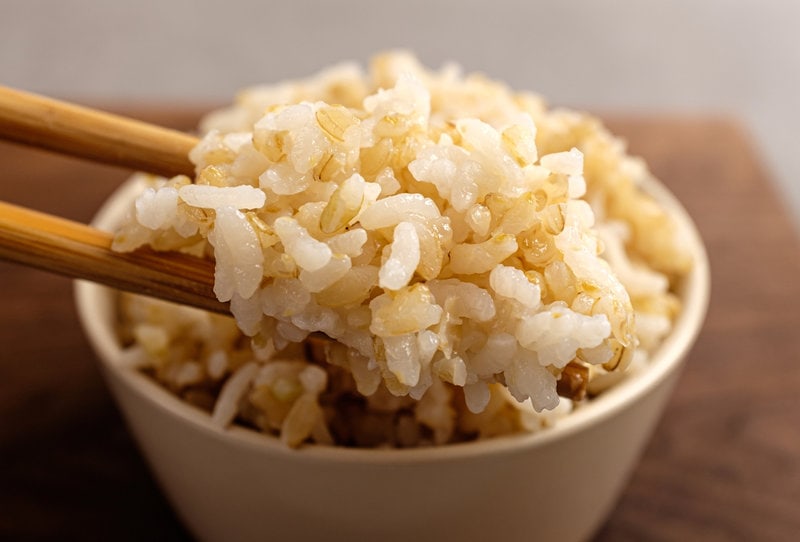Brown rice is beneficial for humans because it is richer in nutrients than white rice. Unlike white rice, brown rice doesn’t cause spikes in blood sugar levels because brown rice doesn’t have a low glycemic index. But have you ever wondered if there are risks involved with dogs eating brown rice? Can dogs have brown rice?
Yes, dogs can have brown rice. But dogs should only eat brown rice in moderation and only if it is prepared without added spices, seasonings, or harmful ingredients. If your dog suffers from allergies, particularly a grain allergy, we recommend that you don’t give your furry friend brown rice. It’s always best to consult a vet before introducing new foods to your furry friend’s regular diet.
This article reviews what amount of brown rice is safe for dogs and the potentially negative reactions some dogs have to rice. We’ll also discuss the differences between white and brown rice. But before that, let’s learn more about the benefits of brown rice for doggies.
Can Dogs Have Brown Rice?
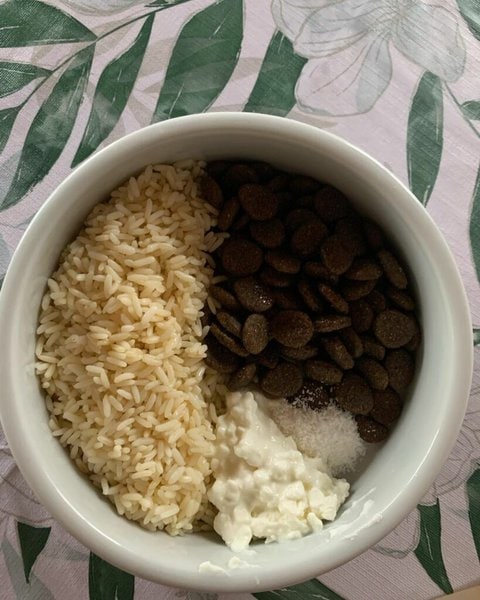
Yes, dogs can have brown rice. Dogs can also eat white rice. However, you should limit the amount dogs eat to less than half of a handful of rice daily. Also, make sure not to serve rice with any added seasoning, spices, salt, or other potentially harmful ingredients.
Don’t feed any kind of rice to dogs with grain allergies. To learn more about food allergies in dogs, consult your vet and learn how different foods could affect your pup.
The good news is that most dogs are not allergic to brown rice and can eat it and enjoy its benefits. Brown rice is the same as white rice, except that the former still has its bran or outer covering. Because of this bran, brown rice has more health benefits for our canine friends.
Can I Feed My Dog Brown Rice Every Day?
Yes, you can feed your dog brown rice daily if you feed less than half a handful daily.
Do not give your canine friends large amounts of brown rice daily to serve as your pup’s main diet. Doing so can cause your pooch to become overweight and nutritionally deficient.
Brown rice is high in carbohydrates, containing even more than white rice. If your canine companion has brown rice daily for their main diet, it will lead to calorie overload. Also, eating only brown rice will make your canine deficient in other nutrients. So occasionally substitute brown rice for other grains or proteins such as eggs.
Why Can’t Dogs Have Brown Rice?
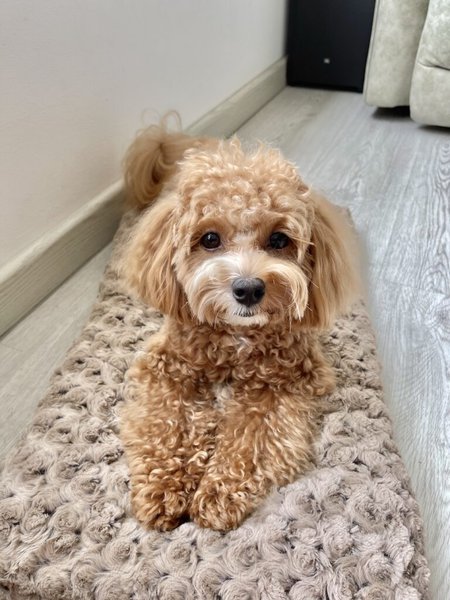
Some dogs can’t have brown rice because of a grain allergy. Other dogs react badly to rice, experiencing diarrhea or weight gain.
Brown rice is hard and takes a long time to digest. So some dogs may experience stomach upset. Overweight dogs or dogs on a strict diet for weight loss shouldn’t eat brown rice because it is so high in carbohydrates.
Is Brown Rice Okay For Dogs?
Yes, a small amount of brown rice is okay for most dogs. Brown rice is more beneficial for your canine buddy than white rice.
Brown rice is not okay for dogs with grain allergies. A brown rice allergy is uncommon in dogs. When dogs experience a bad reaction to rice, it is often because of an ingredient added during preparation. So, don’t add seasonings or spices to the brown rice you give to your doggie.
Brown rice allergy may cause itchy skin, hearing loss, or an ear infection.
Is Brown Rice Hard For Dogs To Digest?
Yes, brown rice is hard for dogs to digest. When serving your dear Fido brown rice, ensure to cook the rice, so it is soft enough for easy digestion.
Brown rice has its bran retained. Bran is a harsh outer coat covering the seed of grains such as rice. So the bran makes brown rice hard to digest.
How Much Brown Rice Can I Give My Dog?
How much brown rice dogs can have depends on how frequently they eat it. In general, less than half of a handful of rice per day is enough for dogs.
Doggies can have 2 to 5 teaspoons of brown rice per day as a treat. The brown rice serving should constitute less than 10% of your dog’s daily diet.
When only feeding your dog brown rice as an occasional treat, give a large-sized dog ⅓ cup of brown rice 2 to 3 times per week. Give medium-sized and small-sized dogs about ¼ of a cup of brown rice 2 to 3 times per week.
How Often Can Dogs Eat Brown Rice?
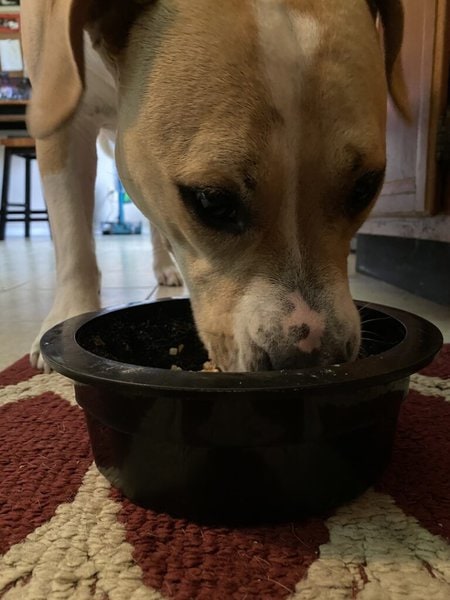
Doggies can eat small amounts of brown rice daily. You can give your doggie slightly more brown rice if you’re only feeding it as an occasional treat. However, feeding our furry companions brown rice only about 2 to 3 times a week is better than serving it daily.
Serving your doggie brown rice occasionally only limits their calorie intake. It also prevents nutritional deficiency caused by an unbalanced meal.
Occasionally, you can substitute brown rice for other grains safe for doggies, such as oats, quinoa, and soy.
Is It Better To Give My Dog Brown Rice Or White Rice?
Both brown and white rice can benefit doggies. But first, consider your individual dog and its health conditions and food sensitivities.
White rice does not retain 100% of its nutrients because it doesn’t contain the bran. So, white rice has fewer calories and less fiber.
White rice is a suitable option when your canine friend has diarrhea. Also, if your doggie is on weight control, white rice is more appropriate than brown rice.
Brown rice retains its bran, which contains nutrients and vitamins, particularly vitamin B. Brown rice also has a glycemic index lower than white rice. So brown rice is better for diabetic dogs because it doesn’t cause blood sugar spikes.
Is Brown Rice Healthier For Dogs Than White Rice?
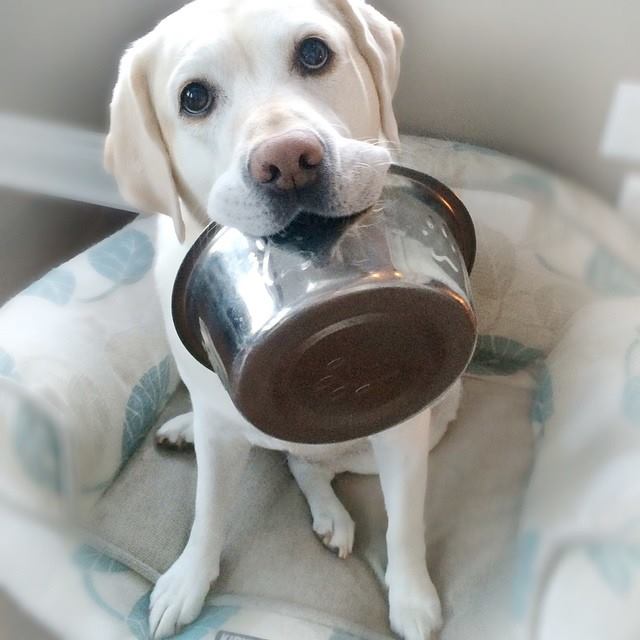
Yes, brown rice is healthier for dogs than white rice. Your furry friend gets more nutrients from brown rice than white rice.
Brown rice contains higher amounts of magnesium, manganese, and selenium, as well as antioxidants, than white rice. These nutrients are beneficial for dogs’ health. For instance, manganese provides energy, and selenium fights stress.
Furthermore, brown rice has a higher protein and vitamin B content than white rice. It also has a lot of fiber, aiding bowel movements in doggies.

